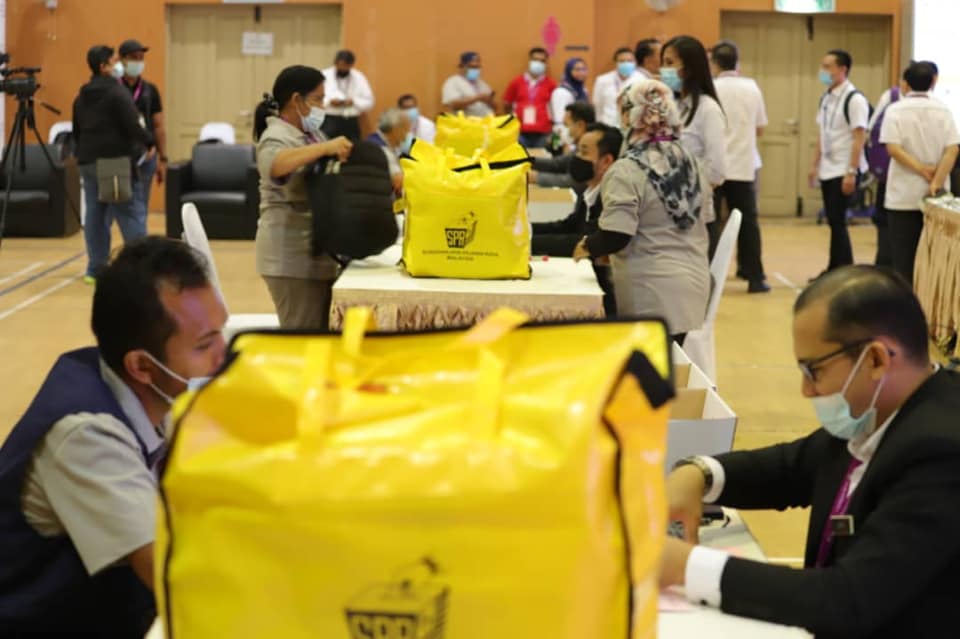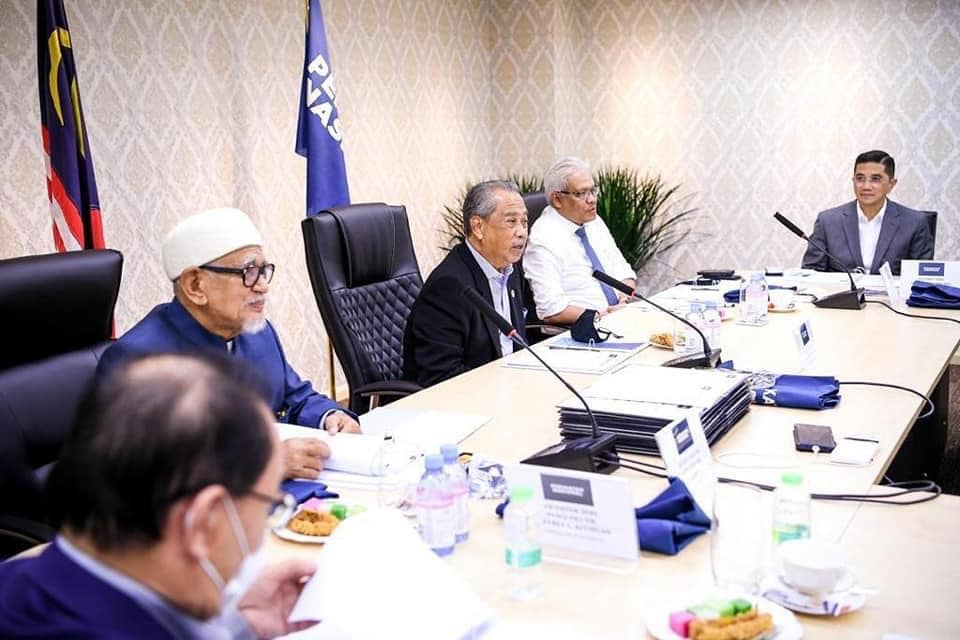
Published in Business Today, The Sun Daily & Focus Malaysia, image from Business Today.
2020 has been an unprecedented year to everyone across the globe. The Covid-19 pandemic has not only disrupted every single individual’s normal way of life, but it has also threatened the economic livelihoods of ordinary citizens.
Therefore, it came as no surprise that after Dictionary.com named “pandemic” its Word of the Year, users of the online dictionary voted “unprecedented” as the People’s Choice 2020 Word of the Year.
In Sabah, during the early stage of the Covid-19 pandemic, its state government then had made an unprecedented, bold decision to halt all international flights since Jan 30, contributing to a relatively lower total number of daily infections for Malaysia as a whole which culminated in Malaysia winning the battle against Covid-19 by the middle of February, when there were 0 infection for consecutive number of days for a week.
When the second wave of infections began in March, the Sabah state government which was not affected in the political crisis at the Federal level, as it remained the state government, managed to contain the daily infections to a one- to two-digit numbers, even though at the national level, the figures were at a two- to three-digit level.
By May 4, when the Conditional Movement Control Order (CMCO) was instituted nationwide, the daily infections moved in tandem with the national figures leading to a one- to two- digit numbers by early June, which led to the Recovery MCO being announced on June 10.
From then on things seemed to be improving until September 11 – the Nomination Day for the Sabah state snap election which was called as a result of intense politicking in the form of a power grab by the former Sabah Chief Minister, Datuk Musa Aman.
A day after on September 12, Sabah recorded the highest infection rate from the Benteng Lahad Datu cluster with confirmed cases reaching 300 – the highest jump in more than three months.
This is despite the fact the state election was conducted under the special standard operating procedures (SOP) imposed by the Electoral Commission (EC) due to the new normal as the country was still under the Recovery MCO.
Although the Health Ministry’s director-general Tan Sri Dr Noor Hisham Abdullah warned the coronavirus reproduction number (Rt) in Sabah is above 1.0, this did not prevent candidates from campaigning throughout the state – both Warisan Plus and Gabungan Rakyat Sabah (GRS) – by organising large-scale gathering with more than 250 people, which violated the SOP during the Recovery MCO.
As many of the peninsula-based Pakatan, Barisan and Perikatan’s leaders flown in to Sabah to support their Sabahan counterparts in campaigning, this enhanced the difficulty of applying physical distancing measures.
Many politicians also did not lead with good examples when pictures of them in the social media standing side by side, without keeping the minimum physical distance of at least 1m to 2m apart. Their supporters also carried out campaign activities without observing physical distancing measures.
As politicians are fighting among themselves for their self-interests instead of prioritising the people’s needs, Sabah emerged as the most infectious state in the third wave of the Covid-19 outbreak in the country.
Although Sabah’s Covid-19 cases are relatively lesser now compared to the beginning of the third wave, Sabah accounts for roughly 35 percent of all Covid-19 cases in Malaysia, which is 36,741 out of 110,485 cases as of Dec 30.
Despite the current Sabah state government is striving its best to minimise the economic impact by allowing more businesses to operate, Sabahan youths, small and medium enterprises (SMEs), low-income and vulnerable groups as well as tourism sector expressed their concern on the continuous three-digit rise in the Covid-19 daily infection figure in Sabah.
With the second wave of job retrenchment and shutdown of local business, the estimated youth unemployment rate in Sabah could rise to at least 20 percent – more than 284,000 Sabahan youths are expected to be unemployed according to the Department of Statistics Malaysia (DOSM).
As more tour agencies, hotels and SMEs are closing their businesses during the past few months, this could result in an estimated 615,000 Sabahans slipping into absolute poverty as the majority of its low-skilled workers purely rely on daily wages to survive and have no savings.
Aside from the tourism sector, a sharp fall in the global oil price also negatively affected the economic performance of the mining and quarrying sector in Sabah. As Sabah is way too dependent on palm oil and crude oil, the state economic growth in the year 2020 is expected to contract between 15 to 19 percent, as stated under Sabah Budget 2021.
While Sabah is well-known as the poorest Malaysian state – 19.5 percent poverty rate in 2019 – and also having the highest unemployment rate in the country – 5.8 percent in 2019, Sabah also recorded one of the lowest broadband penetration than the national average of 127.4 – 81.2 per 100 inhabitants in the first quarter of 2020, according to the Malaysian Communications and Multimedia Commission (MCMC).
Also, the never-ending delay in Pan Borneo Highway construction and the issue of the dilapidated schools in Sabah have revealed the problem of underdeveloped infrastructures in the state. This indirectly adds insult to injury among Sabahans, given the cost of living in Sabah is 30 percent higher than the prices in Peninsular Malaysia.
As Sabah had to rely on imported raw materials and machinery, the cost of construction in Sabah is estimated to be at about 20 percent higher than in Peninsular Malaysia. This is also reflected in the property prices in Sabah, the highest in the country.
Coupled with expensive electricity tariff and poor infrastructure, it might further hinder industrialisation growth in Sabah. As of 2019, the contribution of the manufacturing sector was only 7.6 percent of the Sabah’s GDP due to lack of downstream processed product available for export.
As there is no sign of recovery from the continuous three-digit Covid-19 infections in Sabah, it would be challenging for the current state administration to strike a balance between combatting pandemic, protecting people’s livelihoods, reviving state economy and ensuring political stability in Sabah.
But all is not lost when during the presentation of the state Budget 2021, RM4.3 billion of budget surplus is recorded due to an expected increase in the sales tax revenue for petroleum products of RM1.25 billion which in turn was the result of an agreement between the Sabah state government and Petronas when the state government fell under the Perikatan Nasional (PN) during the recently concluded state election.
Hopefully, this surplus will be made to good use by the state government to uplift the social and economic development of Sabah.
Amanda Yeo is Research Analyst at EMIR Research, an independent think tank focused on strategic policy recommendations based on rigorous research.

